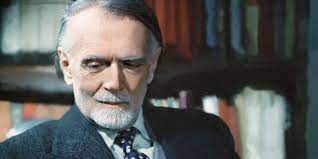Zoltán Kodály (1882–1967) stands as one of Hungary’s most revered and influential composers, ethnomusicologists, and music educators of the 20th century. Born on December 16, 1882, in Kecskemét, Hungary, Kodály’s life and work were deeply intertwined with his passion for Hungarian folk music and his dedication to music education.
Kodály’s early exposure to music came from his family, particularly his mother, who played the piano and sang. He began his formal music education at the Budapest Academy of Music in 1900, studying composition with Hans Koessler. Kodály’s interest in ethnomusicology was sparked during his travels through rural Hungary, where he collected and transcribed folk songs. This experience laid the foundation for his lifelong commitment to integrating folk music into classical compositions.
In 1905, Kodály traveled to Paris, where he studied with renowned French composer and musicologist Vincent d’Indy. This period marked the beginning of Kodály’s exploration into incorporating folk elements into his compositions, a distinctive feature that would characterize much of his oeuvre. His compositions often feature rich harmonies, modal melodies, and rhythmic patterns inspired by Hungarian folk music.
Kodály’s contribution to music education is as significant as his compositional output. Alongside his close friend Béla Bartók, he pioneered a unique approach to music education known as the Kodály Method. This method emphasizes the use of folk songs, solfege, and rhythmic exercises to teach music to children. The Kodály Method has gained international recognition and has been implemented in music education programs worldwide.
Throughout his career, Kodály composed a wide range of works, including orchestral pieces, choral compositions, chamber music, and operas. Some of his notable compositions include the orchestral suite “Háry János” and the “Dances of Galánta.” His choral works, such as the “Missa Brevis” and the “Laudes Organi,” are celebrated for their intricate vocal writing and deep emotional expression.
Kodály’s influence extended beyond Hungary, and he received numerous awards and honors for his contributions to music and education. He served as a professor at the Budapest Academy of Music and continued to be actively involved in musical and pedagogical pursuits until his later years.
Zoltán Kodály passed away on March 6, 1967, leaving behind a rich legacy in the realms of composition, ethnomusicology, and music education. His enduring impact on Hungarian music and his contributions to the global musical landscape ensure his place among the most respected and influential figures in the history of 20th-century music.


Comments are closed